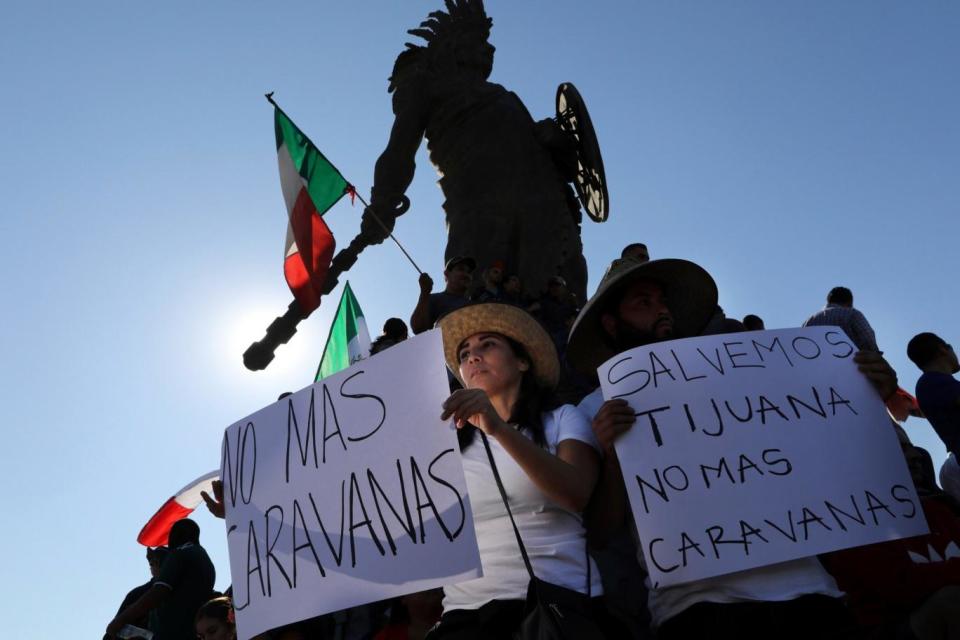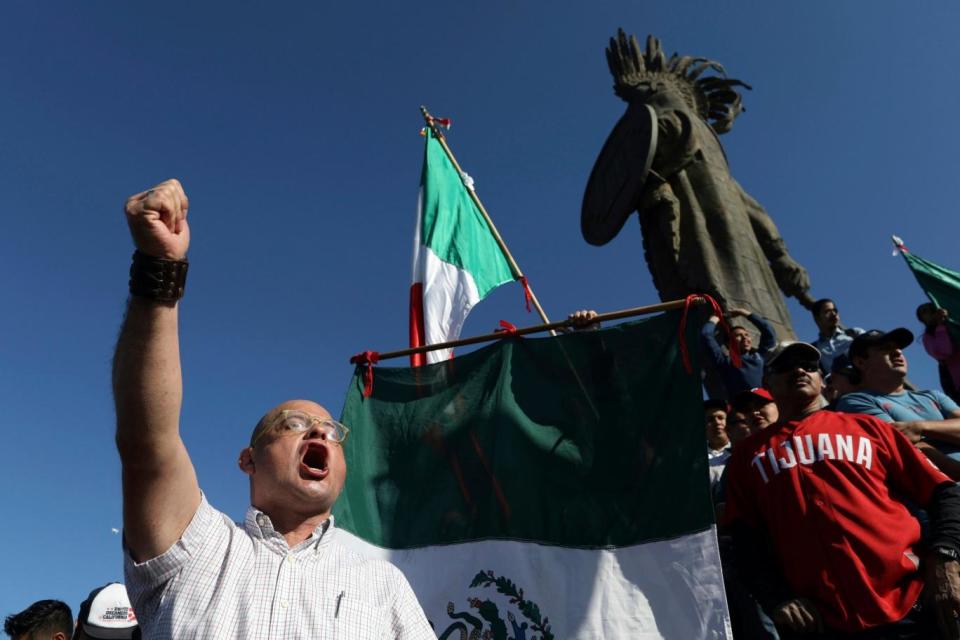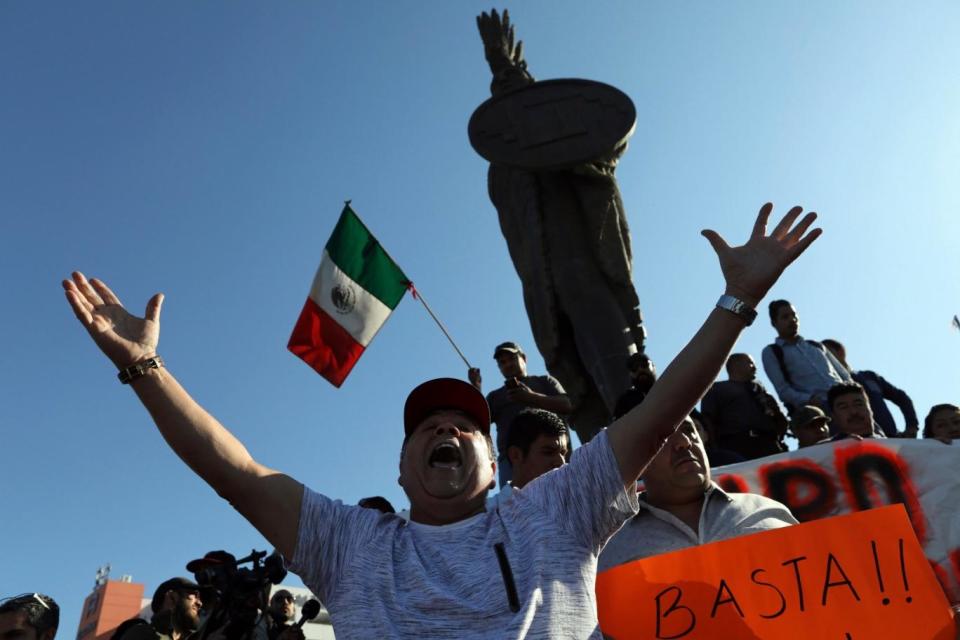Anger as migrant caravan of 3,000 arrives in Tijuana at US border

Hundreds of Mexicans took to the streets of Tijuana to protest as some 3,000 migrants hoping to get into the US arrived in the border city.
As many as 10,000 from the migrant caravan that has been crossing central America are expected over the coming weeks.
Demonstrators waved Mexican flags, sang the national anthem and chanted “Out! Out!” in front of a statue of Aztec ruler Cuauhtemoc about a mile from the US frontier.
They say there will be chaos in Tijuana if the migrants are forced to wait months to seek asylum in America, especially as Donald Trump has vowed to keep them out. Some accused the new arrivals of being dangerous.

A woman who gave her name as Paloma said: “Let their government take care of them.”
Protesters also fear the US will close the frontier, damaging Tijuana’s economy. Mayor Juan Manuel Gastelum said the city was ill-prepared to handle the caravan, calculating they would be in the city for at least six months as they wait to file asylum claims.

He appealed to the federal government for assistance and said: “No city in the world is prepared to receive this — if I’m allowed — this avalanche. It is a tsunami.”
His words were seized on by the US president, who tweeted: “Likewise, the US is ill-prepared for this invasion... They are causing crime and big problems in Mexico. Go home!”

A smaller demonstration was held in support of the migrants, who say they are fleeing persecution, poverty and crime in Honduras, Guatemala and El Salvador.
At the municipal shelter, Josue Caseres, 24, of Honduras, said: “We are fleeing violence. How can they think we are going to come here to be violent?”

 Yahoo News
Yahoo News 
